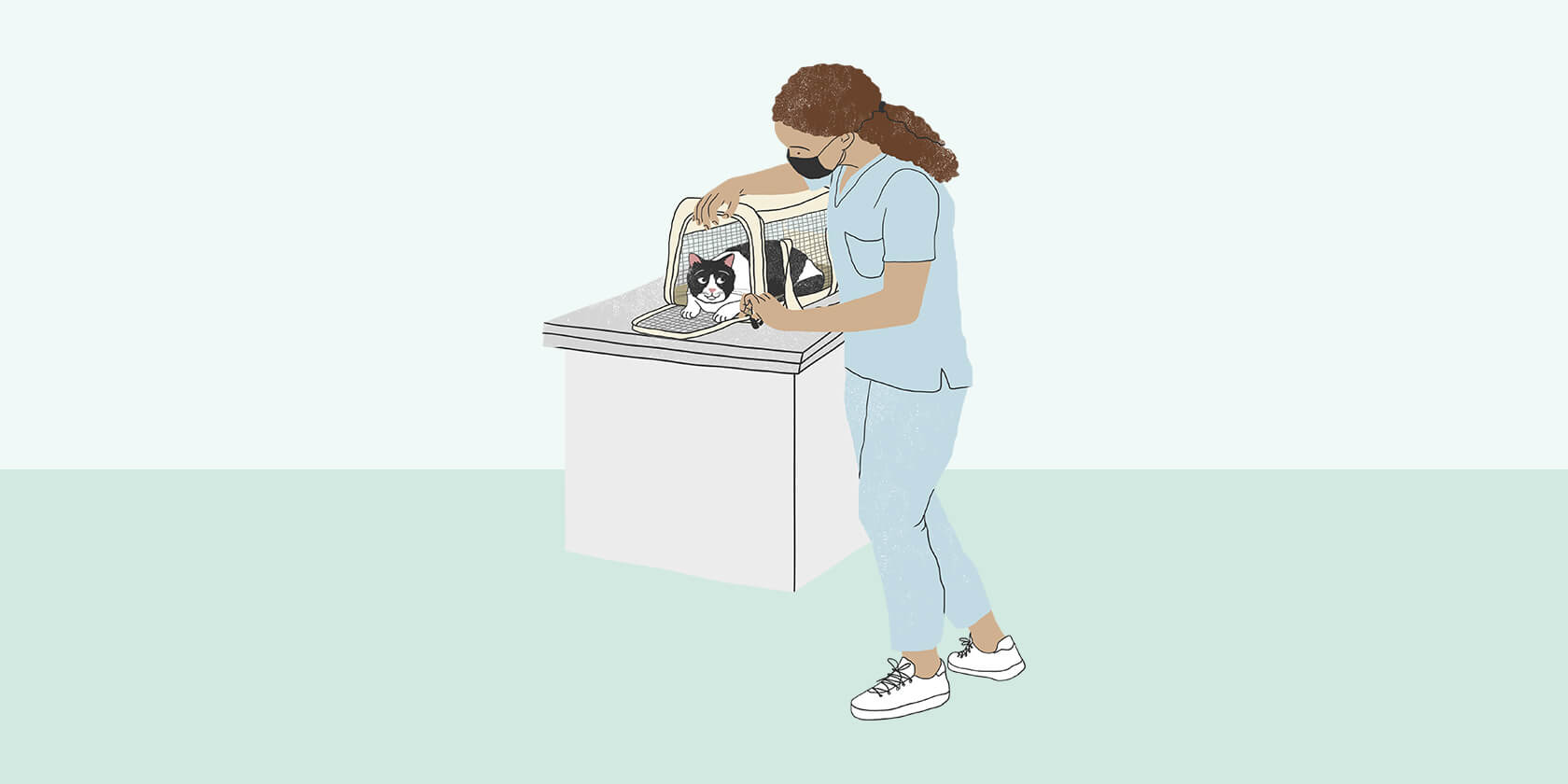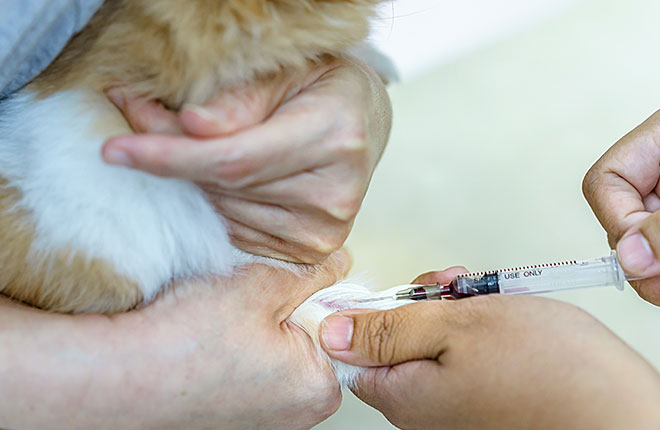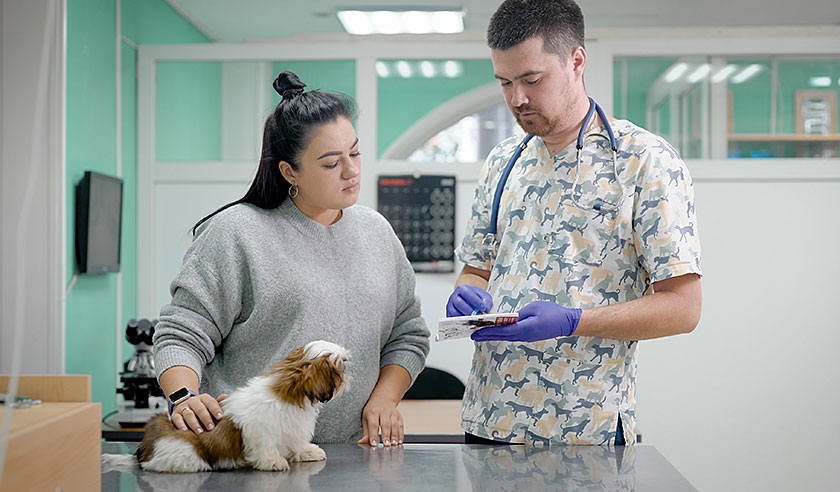The well-being of your pet is important when they’re undergoing anesthesia for any surgery or other procedure. Although the medications used during anesthesia are safe, it’s important to understand that all anesthetic procedures carry some degree of risk – even for healthy pets.
What is Pre-Anesthetic Testing?
To reduce the risks of anesthesia, your veterinary team will evaluate your pet’s health before the procedure happens. This includes performing a complete physical examination and laboratory testing to create a total picture of your pet’s current health status. During the procedure, your veterinarian will use state-of-the-art monitoring equipment and laboratory test results to devise the ideal anesthetic protocol for your pet.

Common Pre-Anesthetic Tests
Blood Chemistry Tests
This test provides useful information on the health and function of your pet's organ systems and fluid balance.
Complete Blood Count (CBC)
This test provides information on red and white blood cell counts. A CBC can detect conditions like leukemia and anemia and assess stress levels, inflammation, infection, as well as platelet count.
Coagulation Tests
A blood test that evaluates the function of important clotting factors that are involved in your pet’s ability to stop bleeding. Genetics, medications, and some toxins can affect the function of these clotting factors.
Urinalysis (Urine Test)
Urine testing may be used to evaluate urinary tract and systematic diseases. A urinalysis helps to assess how well the kidneys can concentrate urine, if there is a protein loss, and if there are any signs of infections or abnormalities in the urine.
Why is Pre-Anesthetic Testing Beneficial for You and Your Pet?
- Testing Helps Evaluate the Safety of Medications to be AdministeredYour pet will be given one or more medications to prepare for sedation and/or general anesthesia. Diagnostic tests help determine which medications are safe and appropriate for your pet, and blood tests evaluate your pet’s ability to metabolize these medications.
- Testing Helps Identify Hidden DiseaseAbnormalities that are detected before the procedure can help reduce the likelihood of anesthetic complications.
- Testing Establishes Healthy Baseline ValuesMany pets show subtle changes in their blood values over time. These changes cannot be identified without establishing normal values for your individual pet. Performing diagnostic testing when your pet is apparently healthy and prior to anesthesia establishes individual baseline values to improve the ability of early disease detection as your pet ages.
- Testing Provides Peace of Mind to You, the Pet OwnerYou and your veterinary team are doing everything possible to ensure a positive outcome for your pet’s procedure. Pre-anesthetic testing is a fast, easy, and affordable way to verify your pet’s health and give you peace of mind before the procedure.
ZPC-00540R1





